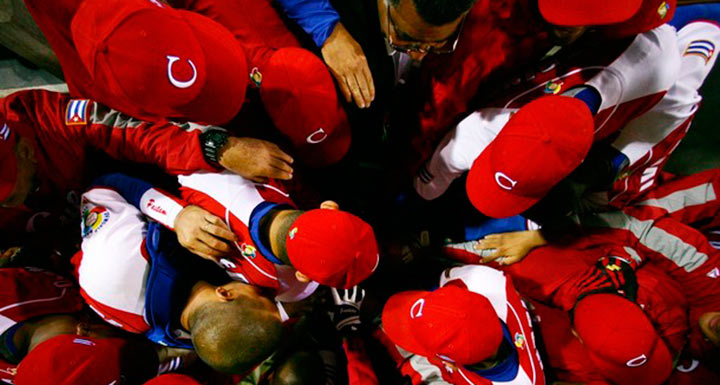
U.S. baseball folly: Stealing Cubans at home
HAVANA — Because of their quality, Cuban baseball players have become fashionable in the United States. Just as newsworthy are the extraordinary salaries they’re contracted for.
That’s not at all strange. The sport has become one of the world’s most lucrative and the athletes have become a much-sought-after merchandise, not only because they’re the heart of the show but also because their images serve to sell products.
No one in sports is immune to this logic, but in no other sport is mercantilism as raw as it is in U.S. baseball. In contrast with the rest of the sports, where there is still some nationalism and athletes try to show that they’re “the best in the world,” what appeals to U.S. baseball businessmen is to make it plain that their championship is, in itself, a “World Series,” even if they can’t win a “Classic,” from the standpoint of their own figures.
The great quarry of the major U.S. leagues is the so-called “draft,” a roster of the nation’s young talents who, as they become professionals, are subject to an equitable distribution among the teams.
Each player goes to the team to which he is assigned, according to the placement of the teams in the national championship — the last team picks first — and his salary is decided by the team. The player must spend at least four years with that team before he can receive a salary compatible with his performance and only an extraordinary player will receive an extraordinary salary.
The other great quarry is Latin America. Most Latin American ball players are formed in the academies established by the U.S. teams in those countries. At a very early age — practically as children — the players sign contracts that bind them to those teams and also regulate their future compensation as professionals.
The talent drain is huge, because in most cases there is no chance that the local clubs will be paid for the sale of their athletes, as happens in soccer and other sports.
In the case of Cuba, the business seems more lucrative, because the U.S. teams don’t spend a cent in the formation of the athletes, and the Cuban side receives no form of compensation and is unable to complain before any legal entity.
However, this practice places both the U.S. teams and the Cuban players at the mercy of the traffickers in human beings. As shown in recent cases, these people resort to all kinds of illegal acts to remove the athletes from Cuba and find them residence in another country, so they can negotiate their contracts with the U.S. league.
Because they hold no previous contracts with U.S. teams, and because they allegedly reside in third countries, the Cubans appear as “free agents,” a status usually attained by U.S. and Latin American players after their original contracts have expired.
The bidding then skyrockets, which explains some of the fabulous salaries paid to those athletes (and their “representatives”) when their quality arouses the interest of several teams, affecting the rest of the players, who sometimes have complained about it.
Although not all of them succeed, they are in fact good players. In fact, when a historical recount of U.S. baseball in the 20th Century was done in 2000, one of the factors that was reported to have eroded its quality was the loss of an important nutrient — Cuban baseball.
At present, there are no objective factors that justify the practice of “taking” Cuban players, endangering their lives and forcing them to break away from their homeland, something that is not in the logic of their aspirations.
The new migratory policy enables Cuban players to emigrate to wherever they wish and return whenever they deem it necessary. The practice of finding them contracts abroad under the representation of Cuban entities has begun, especially for participation in the Japanese league, where they are succeeding.
All this is done in a civilized manner. Teams and athletes benefit by the establishment of fair pay within a framework of legality that protects both parties and enables the players to continue to play in Cuba and to represent their homeland in international competition.
Nobody should be surprised by the quality of Cuban ball players. What’s surprising is the fact that U.S. entrepreneurs don’t understand that it is not good business to “steal” Cuban ball players. But perhaps they know it and are victims of the folly of the same policy they’re trying to sell by that practice.

